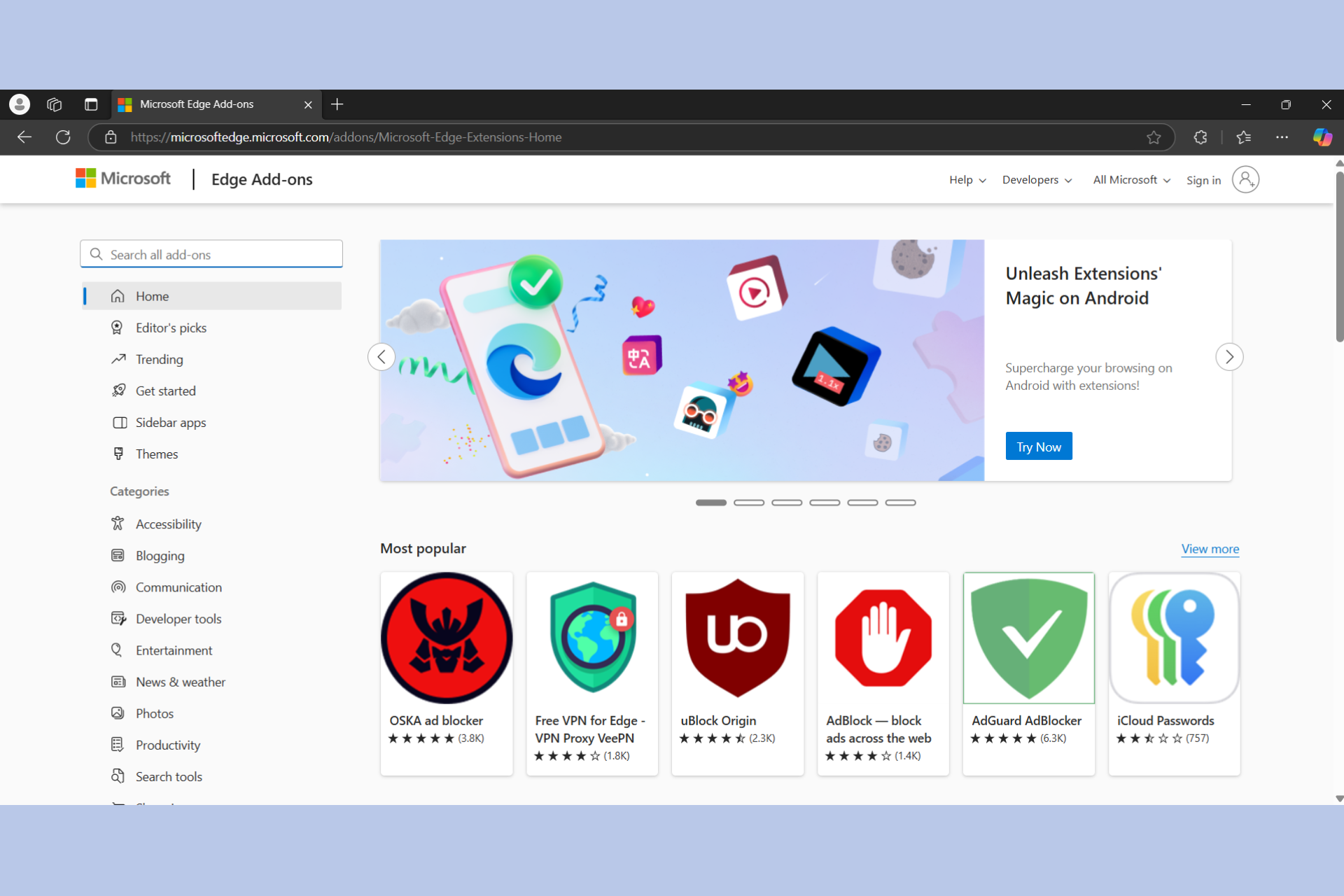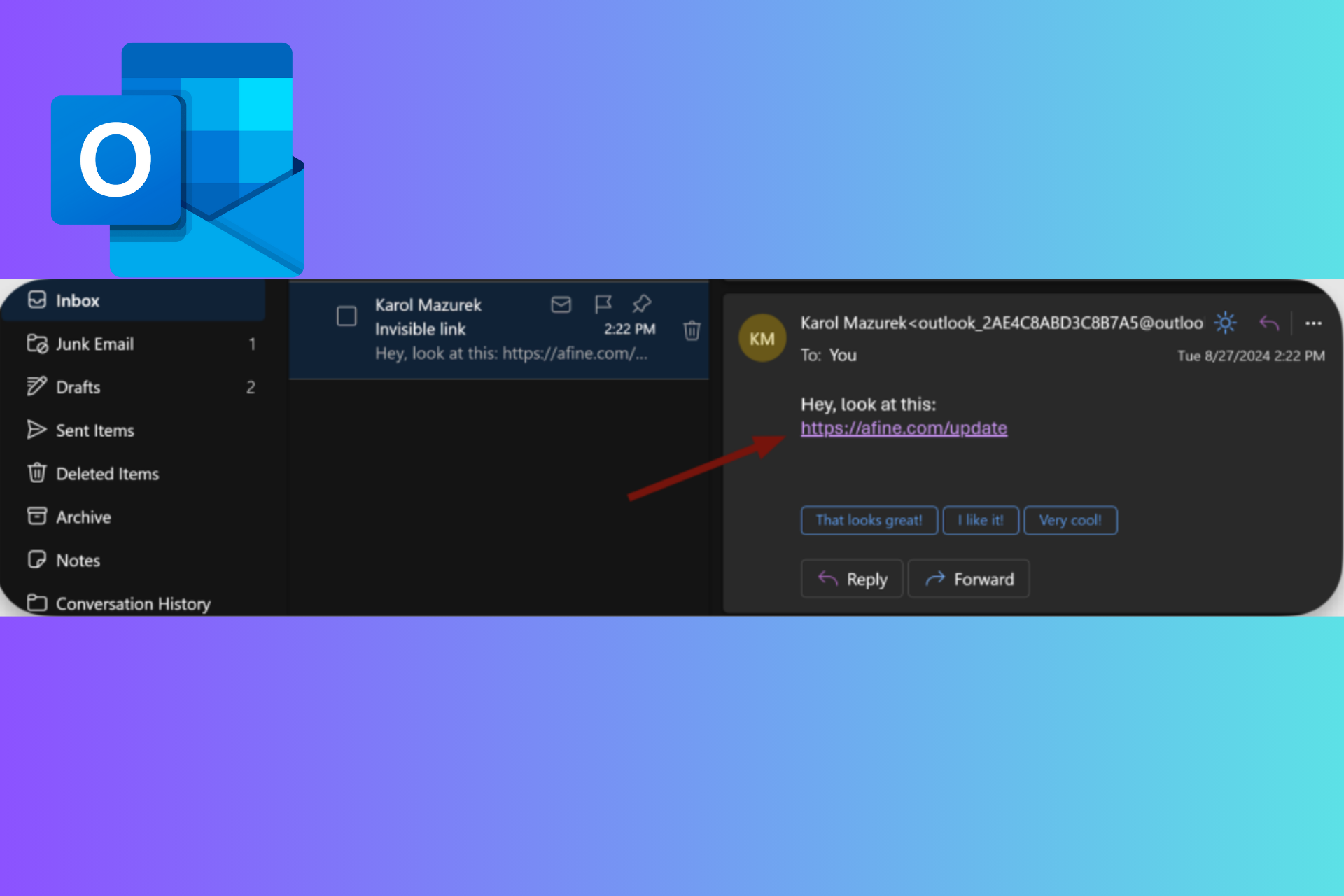HTTPS Everywhere Extension Secures the Websites you Visit
Nowadays, all major browsers enforce HTTPS over HTTP
4 min. read
Updated on
Read our disclosure page to find out how can you help Windows Report sustain the editorial team. Read more
Key notes
- The HTTPS Everywhere secure browsing extension transforms any HTTP website into a more secure HTTPS automatically.
- Nowadays all the major browsers have an HTTPS-only rule, so this add-on is not really necessary.
- However, HTTPS Everywhere still has some interesting features that will complement any browser.

Browser security is very important nowadays since there are many malware programs that can infect your computer through a poorly secured browser.
In order to prevent such unpleasant situations, you should use additional tools to enhance your browser’s security level.
There are many reliable antivirus programs for browsers that you can choose from. However, if you prefer a simple solution, you can also install a security extension on your browser.
What is HTTPS Everywhere?
HTTPS Everywhere is an extension that automatically switches the website that you’re visiting from http to the more secure https.
In this manner, the extension protects you against surveillance and account hijacking attempts as well as some censorship.
HTTPS Everywhere encrypts your connection with many major websites, better securing your browsing experience, since there are many encrypted pages that link to unencrypted websites.
The HTTPS Everywhere extension uses special algorithms to rewrite the requests to these sites to HTTPS.
Quick Tip:
The Opera One browser already includes prevention mechanisms and informs you about unsafe pages by comparing the page to a database of known phishing and malware websites.
When you click on the lock in the address bar, Opera One will display the certificate’s issuer, kind of certificate, and if the issuer is publicly recognized and legitimate. Plus, it comes with a native AI.

Opera One
The native ad-blocker and free proxy VPN provide an additional layer of privacy and safety.What happens when you visit a website using HTTPS?
When you visit an HTTPS website, it will communicate with your browser sending its SSL/TLS certificate for identification.
Practically, it shows its passport to validate its authority. The browser verifies the information and acknowledges (or not) the data.
An HTTPS system also encrypts all the data that is transferred between the browser and the website.
This is a measure to protect the exchange of information that this way, it won’t be intercepted by any third parties.
Should I install HTTPS Everywhere?
HTTPS Everywhere is very useful because, as we’ve mentioned above, it automatically transforms any HTTP website into HTTPS.
However, this extension may cause websites to look weird or even break. If a shield button appears in the address bar, this means that Chrome has blocked the insecure portions of the page.
Sometimes, pages will look weird with their insecure portions removed. If this happens, you can disable the extension for that site using the button in the right-hand corner of the address bar.
But this reduces your security and privacy. As you can see in the picture below, HTTPS Everywhere doesn’t display images correctly.
HTTPS Everywhere is the result of joint collaboration between The Tor Project and the Electronic Frontier Foundation, the same NGO that criticized Microsoft’s aggressive upgrade practices and released the Privacy Badger 2.0 extension.
HTTPS Everywhere for Chrome is still a work in progress, but the extension is reliable and stable enough for everyday usage.
So, should you install HTTPS Everywhere? That’s really up to you but we would go anytime with security over graphic details.
However, most browsers nowadays enforce the use of HTTPS so you don’t really need this add-on for them.
HTTPS Everywhere will be deprecated this year because its functions have become redundant.
You can download HTTPS Everywhere from the Google Web Store. You can still use HTTPS Everywhere for Firefox, Opera One, and Safari.
Do you still need HTTPS Everywhere in Firefox?
Since Firefox 83, Mozilla introduced an HTTPS-Only Mode in the browser so, just as we mentioned earlier, it enforces the use of HTTPS.
Still, HTTPS Everywhere has some other useful functions like making exempts permanently, the ability to add user-based rules, and more.
Electronic Frontier Foundation recommends turning the EASE mode Off and leaving the HTTPS-Only Mode from Firefox on.
This way, you will still be able to use the features of the extension and avoid any conflicts.
That being said, you may be also interested in the best anti-exploit software to protect your browser.
For any questions or ideas, you may also contact us through the comments section below.










User forum
0 messages